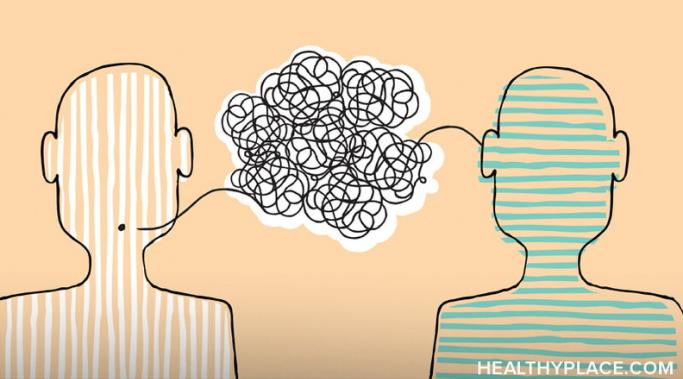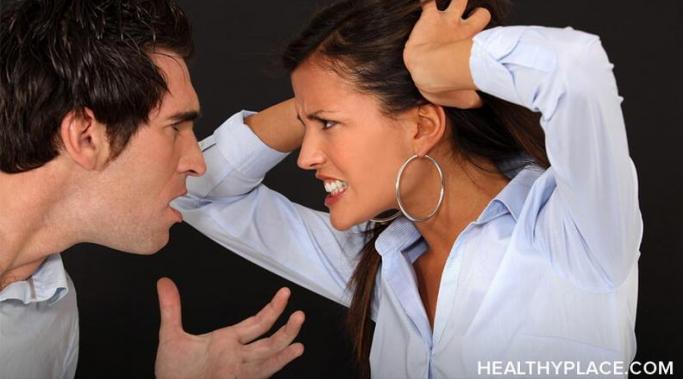As a victim of abuse, my abuser held me to an impossible standard: "Be the perfect woman in my eyes."
Whenever I did not think or behave the way his perfect woman did, then I suffered the consequences (abusive anger, name-calling, intimidation, etc.). In his eyes, my goal in life should be to become the woman he wanted me to be...flawless in his eyes. His perfect idealization left no room to be human, let alone myself!
Please...Knock Me Off That Pedestal
He often told me that he held me up on a pedestal, above all other women, and when I fell off that pedestal, he became angry. This explanation was meant to excuse his poor behavior; it was not an apology.
Stop Abuse
Diane wrote as a comment: Now my husband doesn't drink but does all the other stuff! I am planning on leaving after Christmas but am afraid I wont have a place to live with my girls. I am looking at housing/apartments but my wages are low even though I have a college degree. Any advice would help so much.
Diane, you are not alone in your fear. It is important to financially survive after leaving an abusive situation; you may need to make some temporary material sacrifices for your sanity.
Every good decision is part factual underpinning and part hope. The "hope" part can become fact-based with a little research.
I was sitting around on Thanksgiving Day thinking about all of the holiday traditions I left behind when I left my husband. Amazingly, there aren't any that I miss. I really did try to get myself choked up about my lack of traditional family time, but the tears wouldn't come. Instead, I ended up with a top ten list of the holiday traditions I happily leave in my past.
I'm having a bit of trouble leaving the rules of my marriage behind me. You see, when I was married, I was to be forever less than him. My job was to focus my energies on making him seem and look better - more capable, responsible, trustworthy... It was my job to prop him up to the outside world. He was a poster-board life-size cut-out, smiling and looking grand, and I was the plain cardboard stand sticking in his rear, supporting him.
Abuse affects our foundational thoughts - the ideas of who we are, what we're doing, why we believe what we believe. Manipulative abusers use every weapon against us - mental, emotional, physical - and leave us bleeding our souls onto the floors of our own homes. The damage can be so horrendous that when the abuser is no where to be seen or heard, the injury continues to grow, not to heal.
No where in this world is safe when your abuser's words run laps in your head, circling and creating negative thoughts. Abuse kills from a distance too.
Communicating with an abusive person exercises patience at best and destroys your soul at worst. Communication's definition is the imparting or exchanging of information or news. Communicating with an abusive person is not possible because the abuser blocks or argues mercilessly with what you say unless you parrot their experience, ideas, or words. Attempting communication with an abusive person is pointless, especially when you're in an intimate relationship with one.
Isolation and domestic abuse cannot be separated. Whether physical or emotional or both, isolation is the first step to convincing a victim that their controller is the most important person in the world. How do abusers isolate victims? Why are isolation and domestic abuse inextricably intertwined?
I've used abusive anger to attempt to get what I wanted from my abuser. But then I realized the abusive anger didn't end with him, but extended to my innocent children. Years ago, I promised my children that I would not yell and storm at them when it was time to do their chores. After a bit of trial and error, I successfully reigned in Mommy Mean. I felt relief when I no longer saw my boys' tear-stained faces staring at me in fear. I felt like I was a better person after taming my temper.
Last week, my son Marc asked me to buy him some clothes for winter. I do not have the money to do that and I asked my ex for money for school clothes. I didn't want to ask him, but Marc needed clothes and I don't have the money required, so I asked.
45 minutes after I sent the text, my ex replied, "No."
I expected that answer, so I began texting back, "Okey dokey." But right before I hit the send button, my friend asked me, "Kellie, is that what you really think?"
Brenda M. Bomgardner (@BrendaBomgardnr) tweeted "There is a way to the other side. It is living a life based on your own unique values." She is talking about the life you'll create during and after healing from abuses of all kinds.
The trouble lies in defining what values you, the abuse sufferer, want to define as yours after digging yourself out from under the pseudo-values your abuser demanded you to incorporate into your Self.









